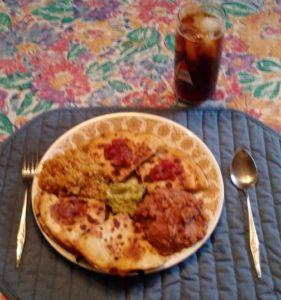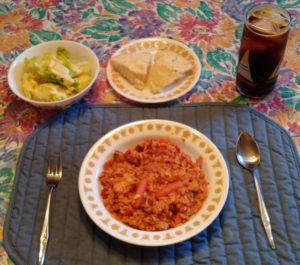Figuring out how to eat vegetarian and lose weight is easy. The trick is to use nutrition labels and online tools to help guide your daily menu planning.
Planning a vegetarian weight-loss diet poses special challenges because of the nutritional considerations involved. Animal products are rich sources of protein, vitamins and minerals. Using nutrition labels and online tools, you can eat vegetarian, lose weight and maintain your health.
Vegetarian Personal Health Needs
Discuss your nutrition needs and health concerns with a registered dietitian or your doctor. Depending on your age, gender and weight, you may need to avoid certain foods and add others to your diet to stay healthy.
Determine a daily calorie amount you can use to plan meals and snacks. Learn what nutrients animal products provide so that you can choose vegetarian dishes that have the vitamins and minerals you need. For example, vegans are at risk of iron and calcium deficiencies, which can lead to anemia and osteoporosis.
Start Prepping Your Vegetarian Menus
Write a list of your favorite foods, regardless of whether or not they contain animal products or many calories. Review your list and create recipes for these foods that substitute vegetarian items for animal products and that eliminate or reduce saturated and trans fats, cholesterol and excess calories.
For example, substitute beans, tofu, lentils and nuts for meat in soups and stews, to get more protein. Black beans and tofu are rich sources of iron. Nuts contain heart-healthy fats. Top pizzas with veggies instead of pepperoni and add tuna instead of ground beef to spaghetti sauce.
If you’re on a budget, check out the inexpensive (less than $2!) vegetarian meals at the Food Stamp Challenge website. They also have a video, Non-Weird Vegetarian Meals, that will help you cook menus for family and friends who aren’t vegetarians.
A Vegetarian Eating Plan
As you start looking at how to eat vegetarian and lose weight, start creating eating plans for each day. Use nutrition labels to count calories and to make sure you get all the nutrients you need. Pay attention to dietary fiber, vitamins A and C, calcium and iron. You will lose iron by not eating beef, and calcium if you don’t eat and drink dairy products.
Add to your diet foods such as soy, lima and kidney beans, lentils, tofu, asparagus, broccoli, spinach, potatoes, Swiss chard and figs, as well as iron-fortified orange juice and cereals.
To get more calcium, eat leafy green vegetables, salmon, tofu, blackstrap molasses and calcium-fortified foods. Oatmeal is an excellent source of cholesterol-fighting dietary fiber.
Don’t Forget to Snack!
Eat five to six times a day to prevent hunger that can lead to overeating. Set regular times for morning and afternoon snacks and eat them each day, even if you are not hungry. This will keep your metabolism running, your body fueled and hunger pangs at bay. To get the protein people normally get from animal products, snack on nuts, either by themselves or in trail mixes.
Prepare snacks ahead of time so that they are ready to eat and portion controlled. Slice veggies and keep them in water in the refrigerator, ready to eat with low-fat dips and dressings. Put snacks such as pretzels, baked chips or trail mix in plastic bags to control the quantity of each snack.
Additional References
Kitchen Table Medicine: 5 Most Common Vegetarian Nutrient Deficiencies


